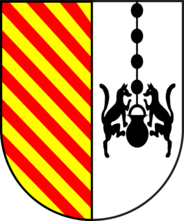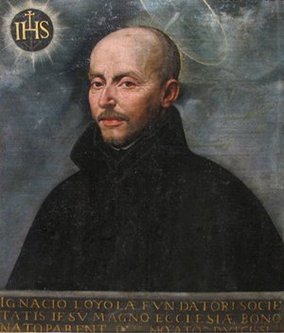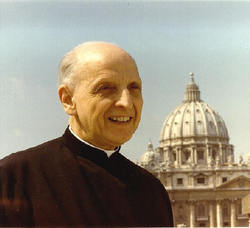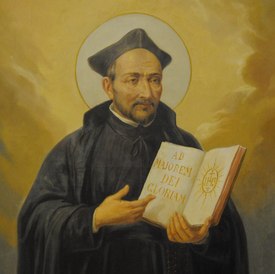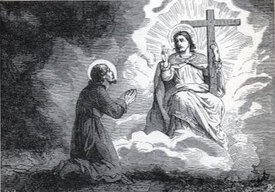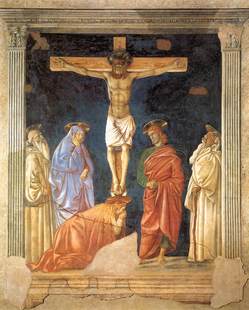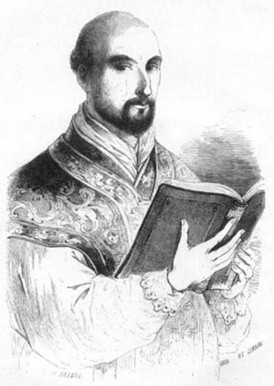The Daily Examen is a spiritual exercise on the events of the day looking to be aware of God's presence and discern His will for us. Various recommendations exist on utilizing this gift of prayer but I think it's necessary to do the Examen twice a day: at midday and then at the end of the day. The whole point of the Examen is to ask the three questions Saint Ignatius Loyola asked: What have I done, what am I doing and what will I do for Christ. This venerable spiritual practice of the Church helps us to see God's hand at work in our whole experience.
Saint Ignatius of Loyola gave us a five-step Daily Examen:
1. Be aware of God's presence;
2. Spend a moment looking over your day with gratitude for this day's gifts;
3. Ask God to send you His Holy Spirit to help you look at your actions, attitudes, motives with honesty and patience;
4. Review your day in a particular way;
5. Have heart-to-heart talk with Jesus.
Looking at these prayer points:
More than 400 years ago Saint Ignatius Loyola encouraged his disciples to cultivate a conscious awareness of the Divine Majesty's work in our lives. He wanted us to live vigorously in the power of the Blessed Trinity. Loyola called this awareness is what the Daily Examen.
1. Become aware of God's presence. So often we forget that God is really present in the daily work we engage in. Here you are asked to look back on the events of the day in the company of the Holy Spirit. The day may seem confusing to you --a blur, a muddle. Ask God to for the grace of clarity and understanding. Wherever you are, you are a creature in the midst of the beauty of creation. As you quiet yourself, become aware that God is present within you, in the creation that surrounds you, in your body, in those around you. Ask the Holy Spirit to let you look on all you see with love.
2. Be concrete and let the important moments of the day come to mind! In a general way give a moment of reflection on what happened to you. Some people will recall the smell of morning coffee, the laugh of a friend, the fragrance of a flower, or the feelings brought forth by a kind word, or what you've learned. Consider what you received and what you gave.
3. Give thanks to God for favors received. This is an opportunity to appreciate the permanent gifts you have that allow your participation in this day; conversely recall your particular strengths in times of difficulty. God the Father gives you these to draw you into the fullness of His life. As you move through the details of your day, give thanks to God for His presence in matters large and small. "When the Spirit of truth comes he will guide you into all truth." (John 16:13) The Holy Spirit inspires you with the gift of growing freedom in your life. Here the freedom the Holy Spirit offers to us allows us to look upon yourself without condemnation and without complacency and thus offering us the opportunity to change, to grow. Ask that you will learn and grow as you reflect, thus deepening your knowledge of self and your relationship with God.
4. Recall the events of your day; explore the specific context of your actions. Search for the internal movements of your heart and your interaction with what was before you. Ask the Lord to show you the moments of grace and sin based on what you experienced since the last time you did the Examen. In what ways did you accept the Spirit's gifts and in what ways did you resist the Holy Spirit? As the Psalmist says, we have a divided heart. The Examen shows us the areas of this division --the wavering of the heart between helping and disregarding, scoffing and encouraging, listening and ignoring, rebuking and forgiving, speaking and silence, neglecting and thanking. Remember, the Examen is not a time to dwell on your sin and other shortcomings; rather, it is a loving look with the Lord at how you have responded to God's gifts. The idea is to notice where you acted freely, that is, cooperated with grace--the picking a particular course of action from the possibilities you saw. See where you were swept along without freedom. What reactions helped or hindered you? See where Christ entered your decisions and where you might have paused to receive His influence. "Test yourselves," Sain Paul urges, "to see whether you are living in faith; examine yourselves. Perhaps you yourselves do not realize that Christ Jesus is in you." (2 Cor.) Thus, you will come to know that Jesus Christ is with you. Christ continually invites you to love Him and your neighbor as yourself; He will strengthen you to do this.
5. Seek God's guidance. Ask Him for help and understanding. Pray for hope. Speak with Jesus about your day, about your concerns. Share your thoughts on your actions, attitudes, feelings and interactions. You may feel the need to seek forgiveness, to ask for direction, to share a concern, to express gratitude, etc. Express sorrow for sin; give thanks for grace, the enlightening presence of God, and especially praise God for the times you responded in ways that allowed you to better see God's life. Resolve with Jesus to move forward in grace-filled action.
You might like to finish your time with the Lord's Prayer and the Glory be.
